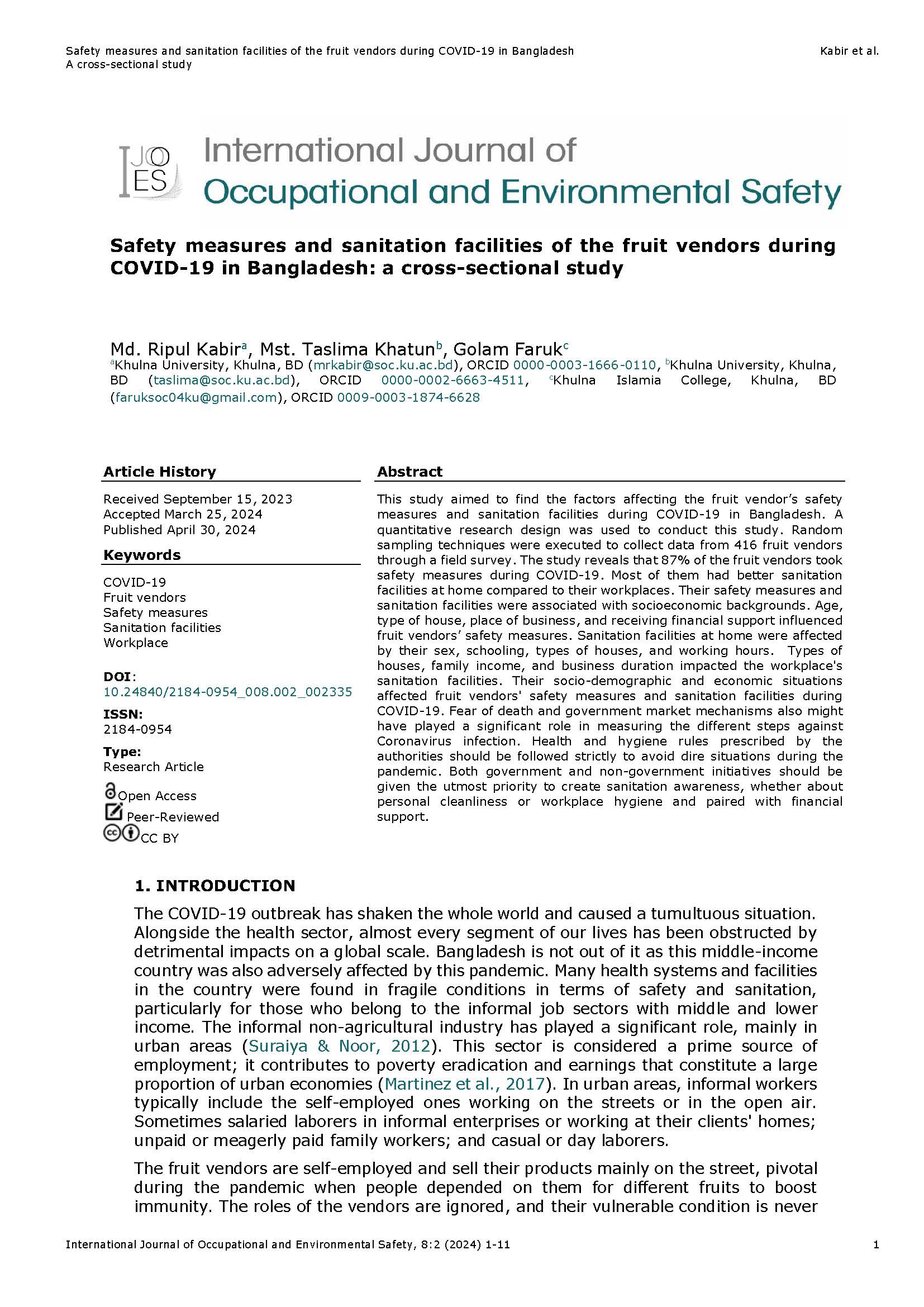Safety measures and sanitation facilities of the fruit vendors during COVID-19 in Bangladesh: a cross-sectional study Article
Main Article Content
Abstract
This study aimed to find the factors affecting the fruit vendor’s safety measures and sanitation facilities during COVID-19 in Bangladesh. A quantitative research design was used to conduct this study. Random sampling techniques were executed to collect data from 416 fruit vendors through a field survey. The study reveals that 87% of the fruit vendors took safety measures during COVID-19. Most of them had better sanitation facilities at home compared to their workplaces. Their safety measures and sanitation facilities were associated with socioeconomic backgrounds. Age, type of house, place of business, and receiving financial support influenced fruit vendors’ safety measures. Sanitation facilities at home were affected by their sex, schooling, types of houses, and working hours. Types of houses, family income, and business duration impacted the workplace's sanitation facilities. Their socio-demographic and economic situations affected fruit vendors' safety measures and sanitation facilities during COVID-19. Fear of death and government market mechanisms also might have played a significant role in measuring the different steps against Coronavirus infection. Health and hygiene rules prescribed by the authorities should be followed strictly to avoid dire situations during the pandemic. Both government and non-government initiatives should be given the utmost priority to create sanitation awareness, whether about personal cleanliness or workplace hygiene and paired with financial support.
Article Details

This work is licensed under a Creative Commons Attribution 4.0 International License.

